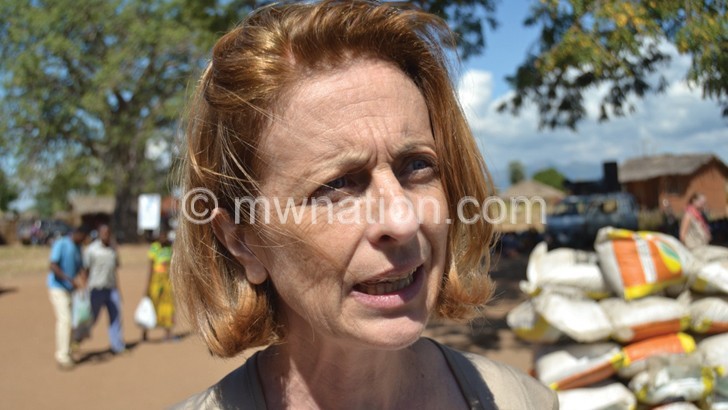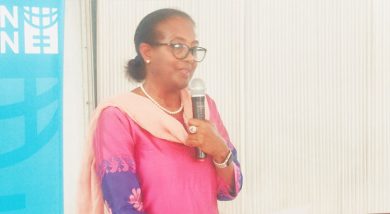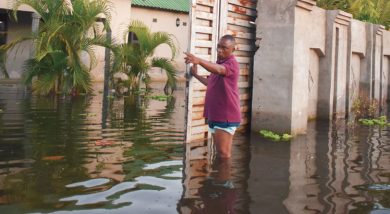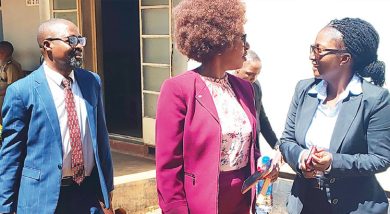Donors push for reforms bills
Development partners who fund elections in Malawi have added their voice to calls for government to take to Parliament Electoral Reforms Bills as earlier promised.
The donors—Norway, Britain, Germany, the European Union (EU)and United Nations Development Programme (UNDP)—are some of government’s partners in the election process providing technical and financial support throughout the election cycle.

as soon as possible
Several of the donors have stressed the importance of tabling and approving the reforms as soon as possible to allow Malawi Electoral Commission (MEC) integrate them into the electoral system.
Asked for their view on the prospects of the Bills being approved in time for the 2019 General Elections, UNDP—the basket fund holder for elections funding—said while they did not have a position on some of the reforms such as 50+1 proposal, the report of the Special Law Commission contained crucial reforms for a credible election.
“As such, the UN would be pleased to see the package of electoral reforms tabled in Parliament for deliberation and determination as soon as is feasible,” the acting UN resident coordinator, Florence Rolle said.
“As soon as reforms are approved, MEC is legally obliged to integrate the reforms into the electoral process, which is why these reforms would best be tabled, debated and approved as soon as possible to give MEC sufficient lead time to take requisite measures.”
On its part, Germany said its expectation was that the reforms would enhance the credibility and efficiency of the electoral system in Malawi.
“If the Bills are tabled and passed soon in the current parliamentary session, I consider prospects to be good for the Bills to form part of the electoral process in 2019,” said Thomas Staiger, deputy head of mission.
While not stating its position on the reforms and 50+1 in particular, Britain said it would be happy to see the package of Bills tabled and debated in Parliament.
“The UK has no position on the 50+1 proposal. That is the issue for Malawians and the legislative system to debate and determine. It is our understanding that the new electoral laws will need to be implemented in 2019,” British High Commissioner Holly Tett responded.
EU, which is expected to bring the largest observation mission to monitor elections in 2019, also seemed confident the Bills would be tabled after the recommendations of the Election Follow-up Mission which visited Malawi in September to assess the current electoral reform process.
“To maintain positive momentum ahead of the 2019 elections and allow for sufficient time for implementation of the reforms, the EU fully supports the government to table the reforms in Parliament in November 2017 as they have undertaken to do so,” EU head of delegation Marchel Gerrmann said in a response to a questionnaire.
Norwegian Ambassador Kikkan Haugen said apart from 50+1, there were other important reforms such as handover of power and regulation of referendums.
“Every stakeholder I have spoken to is confident that the reforms will be tabled in this session and thus be part of the 2019 electoral process. We look forward to the debate in Parliament on these important issues,” he said.
EU is already supporting MEC activities through the UNDP-managed basket fund with a 2.5 million euro (about K2.2 billion) contribution for 2017 to 2019 apart from contribution to the national ID registration and voter education through the National Initiative for Civic Education (Nice) Trust.
However, all the development partners agreed that implementation of reforms regarding voter registration, vote tallying and transmission of results which were a problem in 2014 would be crucial.
“Additionally, MEC, with the support of the UK, UNDP and other Development Partners, is working to improve logistical arrangements, and to ensure the strategic and operational planning around the elections is as accurate as possible,” Tett said.
Commenting on reports of a budget of about $80 million prepared by MEC and submitted to Treasury, the donors said they await a clear indication of what the government will finance before supporting them.
All the donors were of the view that elections being a sovereign process, the majority of the costs would be borne by the government. n





